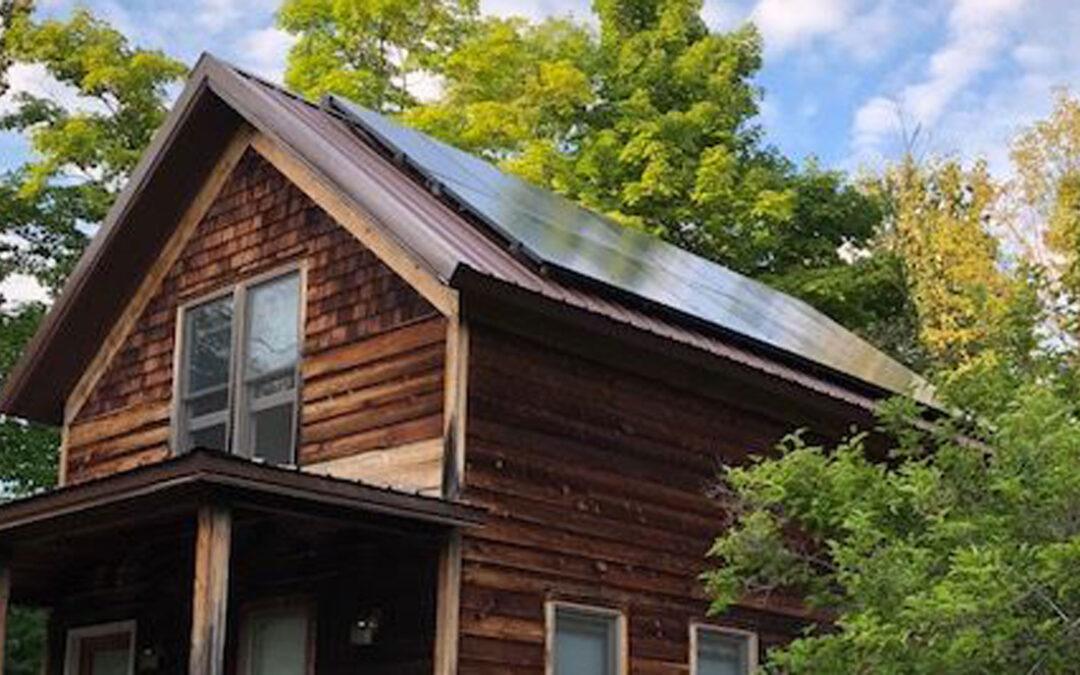
by Andrew Kell | Jul 28, 2021 | Focus on Energy, Policy, PSC Priorities, Public Service Commission
On June 29, 2021, RENEW Wisconsin hosted a webinar titled “Focus on Energy: Economic Impact in Wisconsin.” Dan York from American Council for an Energy Efficient Economy (ACEEE), Scott Blankman from Clean Wisconsin, and Maddie Wazowicz from Midwest Energy Efficiency Alliance (MEEA) provided an overview of the Focus on Energy program. In particular, Wazowicz provided pre-publication results of an upcoming Synapse Energy Economics report analyzing utility bill savings and associated efficiency of business and utility operations that would result from an increase in Focus on Energy’s annual funding.
In his introductory remarks, ACEEE’s York noted that “An analysis conducted a few years ago by the Lawrence Berkeley National Lab found that Focus on Energy was the most cost-effective program serving utility customers in the U.S.” Dan went on to say that according to ACEEE’s own state efficiency scorecard analysis, “while other states have increased their investments and associated spending for customer energy efficiency programs, such funding in Wisconsin has been largely static, locked in by the legislation that created Focus on Energy.” MEEA’s Wazowicz compared Midwestern states’ energy efficiency investments and discussed what an increase of the Focus on Energy budget could mean for Wisconsin.
To understand what additional benefits could be realized from expanding the Focus on Energy program, we can look at results from the upcoming Synapse report. The figure below uses information from a slide presented by Maddie Wazowicz at the webinar and represents pre-publication results from the Synapse study. It shows that doubling the Focus on Energy budget would translate to $20.7 million in annual utility bill savings for Wisconsin utility customers. Of that, $16.95 million in yearly utility bill savings would be realized by Wisconsin businesses if the Focus on Energy budget were doubled! This is what Wisconsin customers would save on top of savings occurring at current Focus on Energy investment levels.
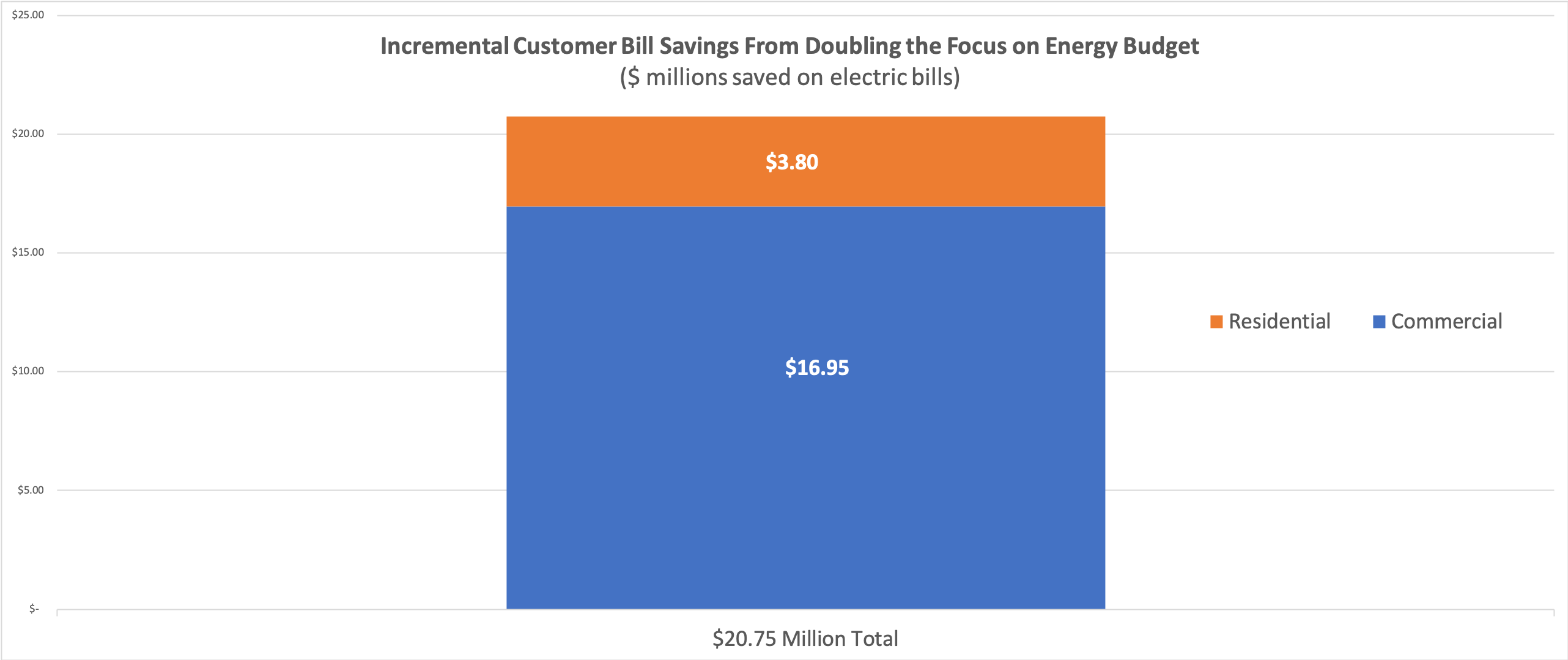
The August Synapse report details avoided utility costs, job creation, economic investment, and reduced air emissions associated with an increase in the Focus on Energy budget. Overall, the report finds that if Wisconsin doubled the Focus on Energy budget the state would receive $340 million dollars in net benefits over one year or $3.4 billion over ten years. Investing in Focus on Energy means a more clean and efficient Wisconsin economy for everyone!
The webinar then transitioned to a discussion of direct economic impacts for Wisconsin business. York moderated a panel of Wisconsin business representatives, who described their experience with the program’s energy efficiency and renewable energy incentives. The panel included Sean Hyland from American Family Insurance, Charles McGinnis from Johnson Controls, Benjamin Reynolds from Reynolds Transfer and Storage, and Tim Ulrich from Cree Lighting.
One of the hot topics of the business panel’s discussion related to data management combined with energy efficiency measures and occupancy sensors. Johnson Control’s McGinnis said that the objective of these combined technologies is to “reduce the amount of energy consumption, for the appropriate amount of occupancy, so that you can optimize the size of renewable energy application to produce green electricity.” Panelists discussed their experience with sustainability programs and performance-based metrics. In combination with his experience with the Focus on Energy program, Benjamin Reynolds described his experience with the Wisconsin Sustainable Business Council and its Green Masters Program. According to Reynolds, the Green Masters Program “is aimed at helping small-to-medium-sized businesses implement sustainability, and figure out ways to improve in energy efficiency, but also improve in waste and other performance metrics.”
Focus on Energy Impact in Wisconsin
This webinar was prompted by calls by supporters to increase funding for Focus on Energy. A RENEW blog post, penned by Michael Vickerman in October of 2020, detailed success stories and energy savings benefits realized by several Wisconsin breweries, such as Capital Brewery in Middleton, WI. That blog post referenced findings of numerous third-party evaluator annual reports on the program. These reports have found that for every dollar invested in Focus on Energy, Wisconsin receives $4 to $5 in economic and environmental benefits. That cost-to-benefit ratio represents a considerable success, as well as a huge opportunity for expansion!
The RENEW blog post also highlighted a recent review of the program by Chair Rebecca Valcq of the Public Service Commission and her request that Governor Evers propose doubling the Focus on Energy budget. Chair Valcq also recently published an op-ed in WISPOLITICS, an online journal, highlighting the economic benefits of Focus on Energy and why an increased investment is needed.
Focus on Energy is currently funded by utilities at about $95 million per year, and funding level changes can only be done through legislation. The Governor followed up on calls to increase Focus on Energy funding by doing just that with his proposed 2021-2023 budget, which RENEW highlighted in a blog post about public listening sessions earlier this year.
This past spring, legislators decided to omit all Governor Evers’ clean energy provisions from its own proposed budget, which unfortunately meant leaving an important economic growth opportunity on the cutting room floor after Governor Evers signed the state budget earlier this July.
Since its inception in 1999, Focus on Energy has fueled a more energy-efficient economy in Wisconsin. The program was created with bipartisan support and can help grow the economy once again with increased funding. Since doubling the Focus on Energy funding was not part of the state budget this year, legislators on both sides of the aisle can prioritize supporting a stand-alone piece of legislation. A clean, growing economy should be something we can all get behind!
For more information, contact Andrew Kell, RENEW Wisconsin’s Policy Analyst, andrew@renewwisconsin.org.
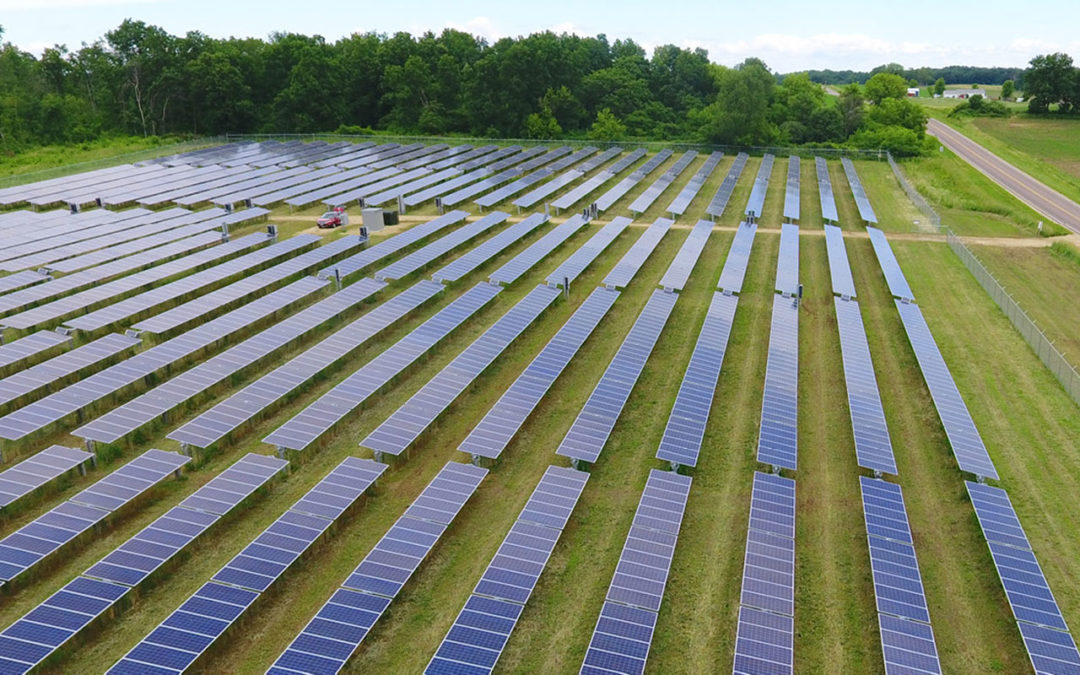
by Katelynn Samuelsen | Jul 23, 2021 | Advocacy, Community, Community Solar, Legislative Watchlist, Policy, Renewables, Solar, Utilities
This blog is from 2021 and does not reflect the 2023 iteration of the Community Solar Bill. For information on the current iteration check here.
Over the past few months, RENEW Wisconsin and our partners have been developing statewide policies that would expand customer access to community solar projects. The National Renewable Energy Laboratory defines community solar, also known as shared solar or solar gardens, as a distributed solar energy deployment model that allows customers to buy or lease part of a larger, offsite shared solar photovoltaic (PV) system. Community members subscribing to a solar facility receive credits for their share of the power produced, either in electricity bill savings or energy (kWh) credits.
New community solar projects are being rapidly developed around the country; 21 states, including Minnesota and Illinois, have already enacted policies that expand the community solar market between subscribing organizations and participating customers. Community solar deployment in the United States has achieved a five-year annual growth rate of 53%[1]. But, lacking statewide policies to promote community solar options, Wisconsin is quickly falling behind.
Since 2010, the number of solar energy systems purchased by US homeowners and businesses has grown tenfold. By the end of 2019, nearly two million homeowners and businesses were reaping the rewards from producing solar-generated electricity. Solar power is popular with many US consumers, and it has become an affordable option for many households and businesses. Yet access to solar power is limited. More than 50% of Wisconsin households cannot access solar energy onsite because they rent, live in multi-tenant buildings, have roofs that cannot host a solar system, or experience some other constraining factor.
In Wisconsin right now, only regulated utilities and cooperatives can provide energy from solar gardens to customers. A few utilities, like Madison Gas and Electric, offer a shared solar service that customers can enroll in today. However, most Wisconsin utilities do not currently have a comparable program available for their customers. That lack of access will persist unless state lawmakers adopt a modernized policy to promote a robust community solar marketplace.
Senator Duey Stroebel (R – Saukville) and Representative Timothy Ramthun (R – Campbellsport) have introduced legislation that would expand access to community solar in Wisconsin. This legislation enables the development of more community solar and supports energy freedom, expands customer choice, saves money on your utility bill, all while creating healthier and more resilient communities.
With a stronger statewide community solar policy, we would open the door for homeowners, businesses, schools, churches, and nonprofits to supply themselves with clean, affordable electricity from a local solar array.
Community solar legislation would benefit all utility customers by adding locally generated electricity to our energy grid while strengthening the rural economy at the same time. Community solar brings guaranteed savings for every subscriber as well as predictable and stable long-term energy costs. It gives customers a choice to support local clean energy projects while expanding access to affordable renewable energy for low-to middle-income residents.
Community solar expansion would allow more Wisconsin farmers to lease their land to host solar arrays and receive a guaranteed secure income for 25 years or longer. This drought-resistant cash crop is especially valuable for Wisconsin’s agricultural communities facing economic stress.
The soil underneath the panels can be planted with a variety of native plants and perennials. In addition to minimizing agricultural runoff and fixing nutrients in the soil, these perennials create a high-quality habitat for bees, butterflies, and other insects that move pollen in and around the fields and improve farm productivity.
When solar panels have reached the end of their useful lives, the equipment can be removed, and crop production can resume on the land that has become more fertile as a result of the native plantings.
A robust community solar market in Wisconsin will create thousands of jobs, spur hundreds of millions of dollars in economic growth, and save customers millions in utility bills. Community solar is proven to support economic development, expand consumer choice and bring clean energy to urban and rural communities across Wisconsin.
Learn more about the proposed community solar legislation at www.wisolarcoalition.com.
[1] The Vision of US Community Solar: A Roadmap to 2030
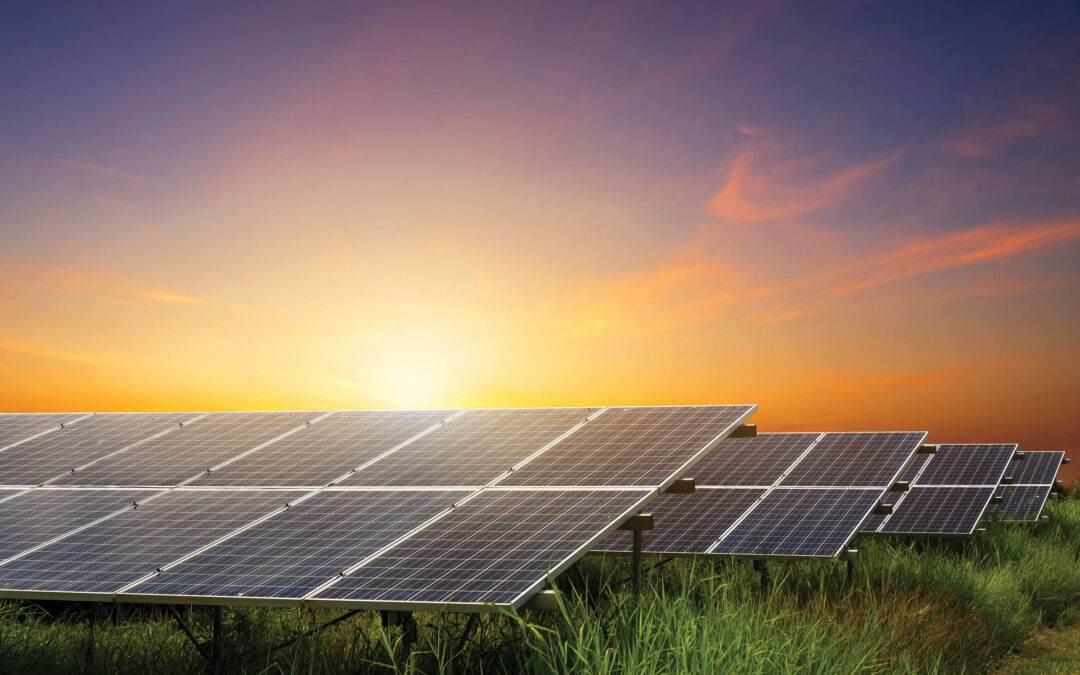
by Michael Vickerman | Jul 19, 2021 | Biogas, Policy, Programs, Renewables, Solar, Utilities, Wind
Wisconsin electric providers added significantly more renewable energy content to their electricity supplies in 2020 relative to 2019, according to a July 2021 report issued by the Public Service Commission. The annual report documents the amount of renewable electricity sold in Wisconsin and determines whether electric providers here comply with the State’s 15-year-old Renewable Portfolio Standard (RPS). This year’s report can be accessed from the PSC’s website at Docket No. 5-RF-2020.
Overall, RPS-eligible renewable energy (or renewable energy that supplies all utility customers) accounted for 12.98% of Wisconsin electricity sales in 2020, increasing more than two percentage points from the 10.71% level recorded in 2019.
This was the most significant advance since 2013 when the State’s electric providers achieved full compliance with the RPS statewide goal of 10% renewable electricity.
As shown in the chart below, the jump in Wisconsin’s renewable energy percentage resulted from a combination of increased renewable electricity supplies and a reduction in electricity sales caused primarily by the coronavirus pandemic.
In late 2020, Wisconsin utilities placed two significant renewable electricity sources in service: the Two Creeks solar farm near the Point Beach Nuclear Plant and the Kossuth wind power plant in north-central Iowa.
| Project |
Resource |
Capacity
(in MW) |
Location |
Utility owner(s) |
| Two Creeks |
Solar |
150 |
Manitowoc County (WI) |
WPS, MGE |
| Kossuth |
Wind |
150 |
Kossuth County (IA) |
Alliant-WPL |
More wind generation imported
Wind power now accounts for 71% of the renewable electricity sold in Wisconsin, and approximately 75% of Wisconsin’s wind generation originates from out of state. Overall, out-of-state sources produced 60% of Wisconsin’s RPS-eligible electricity in 2020.
While Wisconsin-based solar power is growing, it still represents a small sliver of the renewable energy pie. However, by the end of 2022, in-state solar generating capacity should surpass in-state wind capacity, as the ongoing utility effort to replace older fossil plants with new renewable generation shifts into high gear.
The pattern of adding in-state solar and out-of-state wind continues to unfold this year. Wisconsin utilities will have energized two solar farms by year’s end: the 150 MW Badger Hollow 1 project in Iowa County and the 100 MW Point Beach installation, adjoining Two Creeks. In January, a South Dakota wind farm called Tatanka Ridge began generating electricity. Dairyland Power Cooperative purchases electricity from a 51 MW share of that project.
Uneven distribution of renewable content
As shown in the table below, the distribution of RPS-eligible electricity varies widely from one electric provider to another. For example, Xcel Energy, whose territory covers much of Minnesota as well as western Wisconsin, has greatly expanded its renewable energy portfolio over the last three years, relying principally on wind power located west of the Mississippi River. As of today, one-third of Xcel’s electricity supply is renewably powered.
At the other end of the spectrum, the two WEC Energy utilities—Wisconsin Public Service (WPS) and Wisconsin Electric Power (We Energies)—remain stuck in the 5-7% range. That said, RENEW expects WPS’s renewable energy percentage to move higher in 2021, lifted by a full year of production from Two Creeks and five months of production from Badger Hollow 1.
The role of Wisconsin’s RPS – then and now
Today’s electric power industry is in a much different place than where it was in 2006 when the current RPS was adopted. Back then, renewable electricity was in its infancy, both in terms of cost and engineering performance. The purpose of an RPS, as conceived by clean energy advocates and sympathetic legislators, was to was kick-start utility deployment of renewable power sources, aimed at advancing several public policy objectives, among them resource diversity and cleaner air. Upwards of 10 wind power projects presently operating in Wisconsin and the region owe their existence to the RPS.
However, the RPS’s days as a mechanism for fueling new renewable power generation are long past. This year’s crop of solar farms and other renewable projects are the products of market forces and individual utility decarbonization plans, not the RPS. But it remains valuable as a publicly accessible information portal for tracking renewable power supplies flowing through the utilities’ bloodstream. Until the day the state legislature establishes a program for reducing carbon emissions economywide, complete with new metrics and indicators, we will continue to rely on these annual reports to find out how much progress Wisconsin electricity providers are making in their quest to decarbonize their power plants.
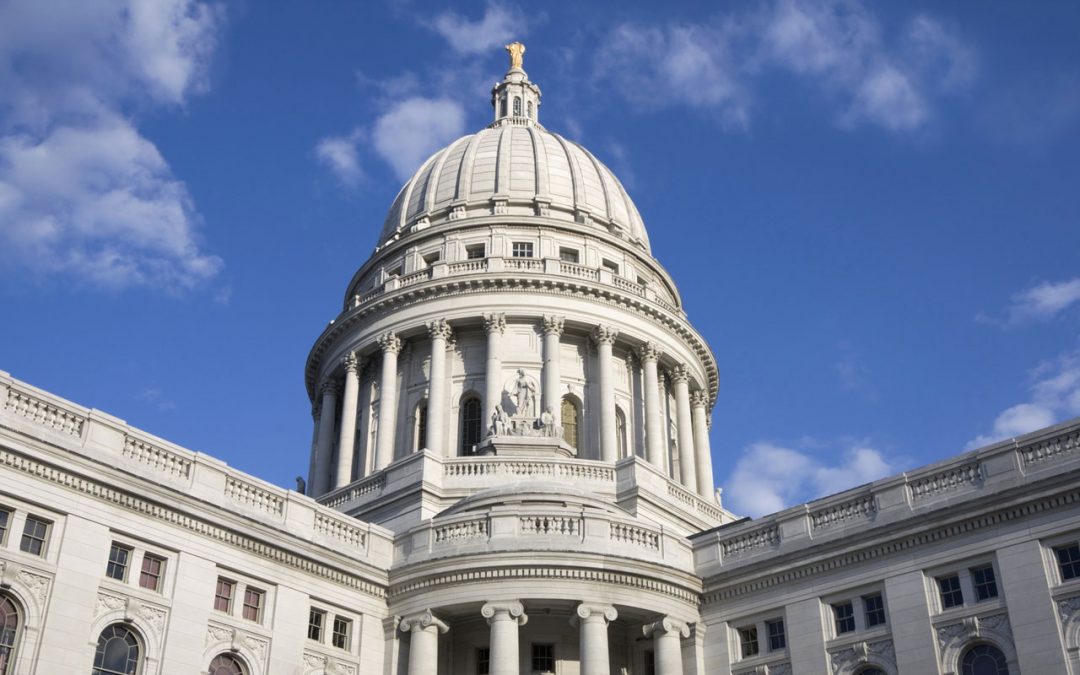
by Jim Boullion | Jul 15, 2021 | Advocacy, Community Solar, Electric Vehicles, Legislative Watchlist, Policy, Renewables, Solar, Utilities
When Governor Tony Evers introduced his 2021-23 Budget Bill in February, it included 28 provisions to advance clean energy and energy efficiency in Wisconsin. Among those provisions were recommendations to expand Focus on Energy, invest in the clean energy workforce, and support Wisconsin’s electric vehicle infrastructure.
Unfortunately, by the time the Governor signed the Budget on Thursday, July 8th, those 28 provisions, along with a majority of the Governor’s other initiatives, were removed from the Budget document adopted by the Joint Finance Committee (JFC) and legislature.
A number of the provisions and other clean energy bills may still be considered during the remainder of the upcoming regular legislative session. Among the proposals we expect to be considered include:
- Community Solar Expansion – Authorize the development of non-utility-owned community solar projects. Would direct the PSC to establish fair credit rates for subscribers and compensation to utilities for the use of their infrastructure and billing services. (Introduced for co-sponsorship on July 14th)
- 3rd Party Financing – Affirm 3rd party financing of solar arrays is legal.
- Direct Purchase of Automobiles – Enable electric vehicle manufacturers to sell vehicles directly to consumers in Wisconsin, either online or at manufacturer-owned facilities, without going through an independent dealership.
- EV Charging Station Grants – Allocate up to $10 million of the unspent VW Settlement funds for clean energy corridor incentives for EV charging stations.
- EV Charging Fees – Clarify selling electricity by the kilowatt-hour to EVs does not subject EV charging station owners to utility regulation.
RENEW Wisconsin will continue to work with the legislature and the Governor to advance these and other clean energy initiatives. We hope you will join us.
If you would like to talk to your legislators about any of these provisions or have other clean energy ideas that you think the State should adopt, click here to find your representatives’ contact information.
If you have any questions or comments about any of these issues, please contact Jim Boullion, RENEW Wisconsin’s Director of Government Affairs, at jim@renewwisconsin.org.

by Jeremy Orr | May 25, 2021 | Electric Vehicles, Policy
Senator Dale Kooyenga (R-Brookfield) and Representative Adam Neylon (R-Pewaukee) circulated a bill earlier this week that would allow for a direct sales business model of electric vehicles (EVs). If passed, EV manufacturers could sell their vehicles directly to consumers, either online or from a manufacturer-owned dealership, rather than through the traditional dealership model we know today.
The Kooyenga/Neylon Bill is key to increasing EV adoption and is a much-needed policy to overcome a free market barrier. It would permit Wisconsin’s consumers greater access to EVs that better suit their financial and driving needs by allowing them to purchase online or directly from the manufacturer-dealership.
Consumer purchasing power is especially relevant when considering increased demand in the electric vehicle market. Edmunds predicts the U.S. will experience record EV sales in 2021, while Bloomberg projections demonstrate increased demand in the coming decades, with a projected 54 million EV sales in 2040. Even here in Wisconsin, we can expect anywhere from 25%-50% EV adoption by 2050[1]. Adopting the Kooyenga/Neylon bill would give consumers more EV purchasing options, granting direct access to their electric vehicle models of choice as EV demand continues to climb and more models become available.
Online consumer spending increased over the past year, and most consumers prefer a portion of their vehicle purchasing decisions to be online. The virtual EV marketplace is expected to grow alongside a rapidly growing EV market, lending greater free-market support for the Kooyenga/Neylon bill.
At any rate, aren’t the purchasing decisions of Wisconsin’s consumers better left to them? The free market says so, and this is exactly what the Kooyenga/Neylon bill would allow.
For more information, please contact Jeremy Orr at (608) 210-1428 or jeremy@renewwisconsin.org.
[1] Plug-In Electric Vehicle Analysis of Wisconsin, RENEW Wisconsin and University of Wisconsin-Madison Energy Analysis and Policy Capstone Project, May 2019.

by Jim Boullion | Mar 22, 2021 | Action Alert, Legislative Watchlist, Policy
RENEW Wisconsin supports the 28 clean energy provisions that Governor Evers included in his proposed 2021-23 Budget Bill. Among them are recommendations to expand Focus on Energy, invest in the clean energy workforce, and advance Wisconsin’s electric vehicle infrastructure.
The Budget Bill is now in the hands of the state legislature, and the Joint Finance Committee (JFC) has announced four listening sessions, three in-person and one virtual, to learn about your Budget priorities.
The JFC public hearings all begin at 10:00 a.m. and will be held at these locations:
- Friday, April 9, 2021, UW-Whitewater, Whitewater, WI
- Wednesday, April 21, 2021, The Hodag Dome, Rhinelander, WI
- Thursday, April 22, 2021, UW-Stout, Menomonie, WI
- Wednesday, April 28, 2021, Virtual
Due to the expected crowd size, speakers (virtual and in-person) will be given just two minutes to speak. If you would like to submit more in-depth comments, the committee has created a web portal for citizens to provide input. The JFC has also developed a dedicated email address for comments: budget.comments@legis.wisconsin.gov.
While the JFC process is important, it does have its limitations. The most effective thing you can do to support the clean energy Budget proposals is to speak directly with your state legislators, especially if they are a member of the Joint Finance Committee or in the Senate or Assembly legislative leadership. You can contact them one-on-one or see if they are holding in-district or virtual listening sessions for their constituents. To find the contact information for your legislators, you can use the digital Legislative District Map.
Every legislator has a vote and can influence what is included in the final Budget package. Make your legislators understand that clean energy issues are a priority for you!
If you have any questions or find out that your legislators are especially supportive or opposed to the clean energy proposals, please tell Jim Boullion, RENEW Wisconsin’s Director of Government Affairs, jim@renewwisconsin.org.






